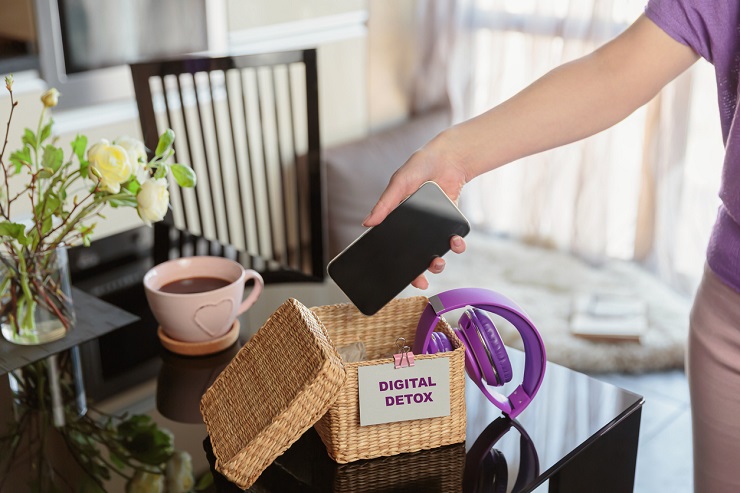
Too much phone use is the most commonly reported unwanted habit. We are using digital devices more frequently now than ever before in history. A recent survey showed that we’re spending on average 8-9 hours a day looking at a screen. That’s a third of our life or roughly 27 years!
The consequences of this screen-centric lifestyle extend far beyond mere time consumption. Increased screen time correlates with decreased physical activity, mindless eating habits, diminished social connections, and heightened feelings of loneliness, anxiety, and depression. The blue light emitted by screens also disrupts our sleep patterns, exacerbating issues related to restfulness and overall well-being.
To combat the negative impacts of excessive screen time, it’s crucial to establish boundaries. Setting limits on screen time, particularly before bedtime, and taking intentional breaks from phone usage are vital steps towards reclaiming a healthier relationship with our tech.
Try to set limits on screen time, especially before bed and take regular and intentional breaks from your phone.
Here are some practical strategies to reduce screen time and create healthier tech habits:
Establish a digital curfew
Designate certain areas in your home or workspace where phone use is not allowed. For example, you can establish your bedroom or dining area as phone-free zones to promote better sleep and more focused mealtimes.
Set a sleep reminder to give yourself some digital-free time before bed
Activate driving mode
Be mindful of your phone usage triggers and the underlying reasons why you reach for your phone
Physically separate yourself from your phone to reduce temptation. Keep your phone in a different room or in a designated “phone-free" box
Mute non-essential notifications
Have a digital depot for mealtimes
Create VIP notifications
Put your phone on silent and out of sight
Have a phone basket or drawer
Designate specific times or activities during the day where you commit to being phone-free
Log out of social media
Manage auto-play settings
Use built-in features or third-party apps to set time limits for specific apps or overall phone usage
Use tech-prohibiting apps like Freedom, RescueTime, or others
Determine when you’re most likely to be distracted by your phone and activate greyscale mode
Discover activities that bring you joy and fulfilment without relying on your phone. Engage in hobbies, read books, exercise, spend time in nature, practice mindfulness, or socialise with friends and family
Remove tech temptations off your phone’s home screen
Remove tech temptations from your computer’s toolbar
Simplify your home screen by organising apps into folders and keeping only essential apps visible
Invest in a traditional alarm clock
By implementing some of these strategies and fostering a mindful approach to technology usage, you can regain control of your screen time and create healthier habits for a more balanced and fulfilling life.